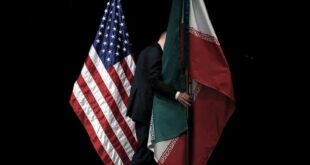 TEHRAN (FNA)- Iranian Foreign Minister Manouchehr Mottaki, in an interview published Monday, said his country did not believed Israel or the United States would launch a military strike against Iran over its nuclear program.
TEHRAN (FNA)- Iranian Foreign Minister Manouchehr Mottaki, in an interview published Monday, said his country did not believed Israel or the United States would launch a military strike against Iran over its nuclear program.
Asked in an interview with Newsweek magazine and The Washington Post if he believed there would an Israeli or US attack on Iranian nuclear facilities, Mottaki answered flatly, “No.”
At the same time, he welcomed the US decision last July to send one of the top State Department officials, William Burns, to attend negotiations with Iran in Europe, interpreting the move as a realistic step.
“We welcomed the participation by Mr. Burns in the Geneva talks,” Mottaki said. “We feel that if this is the real approach taken by the US right now vis-Ã -vis the nuclear issue, they must continue with such efforts.”
The foreign minister said that previously, the administration of President George W. Bush attached conditions to its participation in the talks with Iran.
Burns’s presence in Geneva, argued Mottaki, “meant that those were no longer in play.”
Israel and its close ally the United States accuse Iran of seeking a nuclear weapon, while they have never presented any corroborative document to substantiate their allegations. Both Washington and Tel Aviv possess advanced weapons of mass destruction, including nuclear warheads.
Iran vehemently denies the charges, insisting that its nuclear program is for peaceful purposes only. Tehran stresses that the country has always pursued a civilian path to provide power to the growing number of Iranian population, whose fossil fuel would eventually run dry.
Speculation that Israel could bomb Iran has mounted since a big Israeli air drill in June. In the first week of June, 100 Israeli F-16 and F-15 fighters reportedly took part in an exercise over the eastern Mediterranean and Greece, which was interpreted as a dress rehearsal for a possible attack on Iran’s nuclear installations.
Iran has, in return, warned that it would target Israel and its worldwide interests in case it comes under attack by the Tel Aviv.
The United States has also always stressed that military action is a main option for the White House to deter Iran’s progress in the field of nuclear technology.
Iran has warned it could close the strategic Strait of Hormoz if it became the target of a military attack over its nuclear program.
Strait of Hormoz, the entrance to the strategic Persian Gulf waterway, is a major oil shipping route.
Intensified threats by Tel Aviv and Washington of military action against Iran contradict a recent report by 16 US intelligence bodies which endorsed the civilian nature of Iran’s nuclear plans and activities.
Following the US National Intelligence Estimate (NIE) and similar reports by the IAEA head – one in November and the other one in February – which praised Iran’s truthfulness about key aspects of its past nuclear activities and announced settlement of outstanding issues with Tehran, any effort to impose further sanctions or launch military attack on Iran seems to be completely irrational.
The February report by the UN nuclear watchdog, the International Atomic Energy Agency, praised Iran’s cooperation in clearing up all of the past questions over its nuclear program, vindicating Iran’s nuclear program and leaving no justification for any new UN sanctions.
The UN nuclear watchdog has also carried out at least 14 surprise inspections of Iran’s nuclear sites so far, but found nothing to support West’s allegations.
Many world nations have called the UN Security Council pressure against Iran unjustified, especially in the wake of recent IAEA reports, stressing that Tehran’s case should be normalized and returned to the UN nuclear watchdog due to the Islamic Republic’s increased cooperation with the agency.
Observers believe that the shift of policy by the White House to send William Burns – the third highest-ranking diplomat in the US – to the latest round of Iran-West talks happened after Bush’s attempt to rally international pressure against Iran lost steam due to the growing international vigilance.
US President George W. Bush finished a tour of the Middle East in winter to gain the consensus of his Arab allies to unite against Iran.
But hosting officials of the regional nations dismissed Bush’s allegations, describing Tehran as a good friend of their countries.
Meantime, a recent study by the Institute for Science and International Security (ISIS), a prestigious American think tank, has found that a military strike on Iran’s nuclear facilities “is unlikely” to delay the country’s program.
The ISIS study also cautioned that an attack against Iran would backfire by compelling the country to acquire nuclear weaponry.
 Eurasia Press & News
Eurasia Press & News

